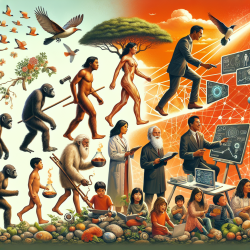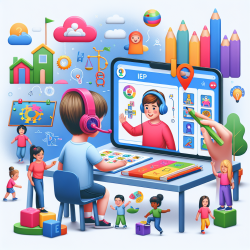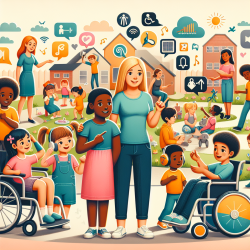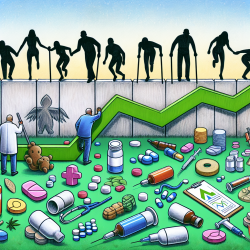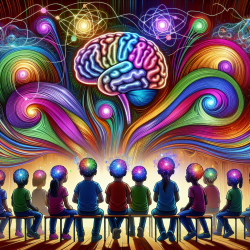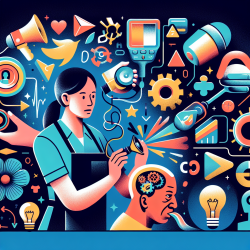Welcome to the Anthropocene: A New Era of Learning
As a Special Education Director, staying informed and adaptable is crucial. The Anthropocene, a term describing our current era where human activity is the dominant influence on climate and the environment, presents unique challenges and opportunities. The research article "Evolution and sustainability: gathering the strands for an Anthropocene synthesis" provides insights that can help educators and therapists improve their skills and adapt to this new era.
Key Insights from the Research
The article emphasizes the importance of understanding how human societies have evolved to become a major force of global change. It highlights the need for a synthesis of evolutionary dynamics and sustainability efforts to guide us toward global sustainability. Here are some actionable insights from the research:
- Embrace Evolutionary Thinking: Understand the dynamics of innovation and differential transmission. This involves recognizing how ideas and practices spread and evolve within educational and therapeutic settings.
- Foster Transdisciplinary Approaches: Collaborate across disciplines to address the complex challenges of the Anthropocene. This can lead to more holistic and effective solutions in special education and therapy.
- Focus on Sustainability: Incorporate sustainable practices into your work. This could involve using digital tools to reduce paper usage or implementing energy-efficient practices in therapy sessions.
Improving Skills Through Further Research
To truly harness the potential of the Anthropocene synthesis, further research is encouraged. Here are some ways you can engage with this research:
- Attend Conferences and Webinars: Stay updated with the latest research and practices by attending events focused on evolution and sustainability.
- Read Publications: Regularly read journals and articles related to special education, therapy, and sustainability to keep your knowledge current.
- Network with Peers: Engage with other professionals to exchange ideas and experiences. This can provide new perspectives and innovative solutions.
Implementing Research Outcomes
By implementing the outcomes of this research, practitioners can enhance their skills and contribute to a more sustainable and effective educational environment. Here are some practical steps:
- Integrate Technology: Use online therapy platforms to reach more students and reduce environmental impact.
- Promote Inclusivity: Ensure that sustainability efforts are inclusive and benefit all students, regardless of their abilities.
- Encourage Lifelong Learning: Foster a culture of continuous improvement and adaptation among staff and students.
Conclusion
The Anthropocene presents both challenges and opportunities for those in special education and therapy. By embracing evolutionary thinking and sustainability, practitioners can improve their skills and contribute to a better future. To delve deeper into the research, consider reading the original paper.
To read the original research paper, please follow this link: Evolution and sustainability: gathering the strands for an Anthropocene synthesis.
